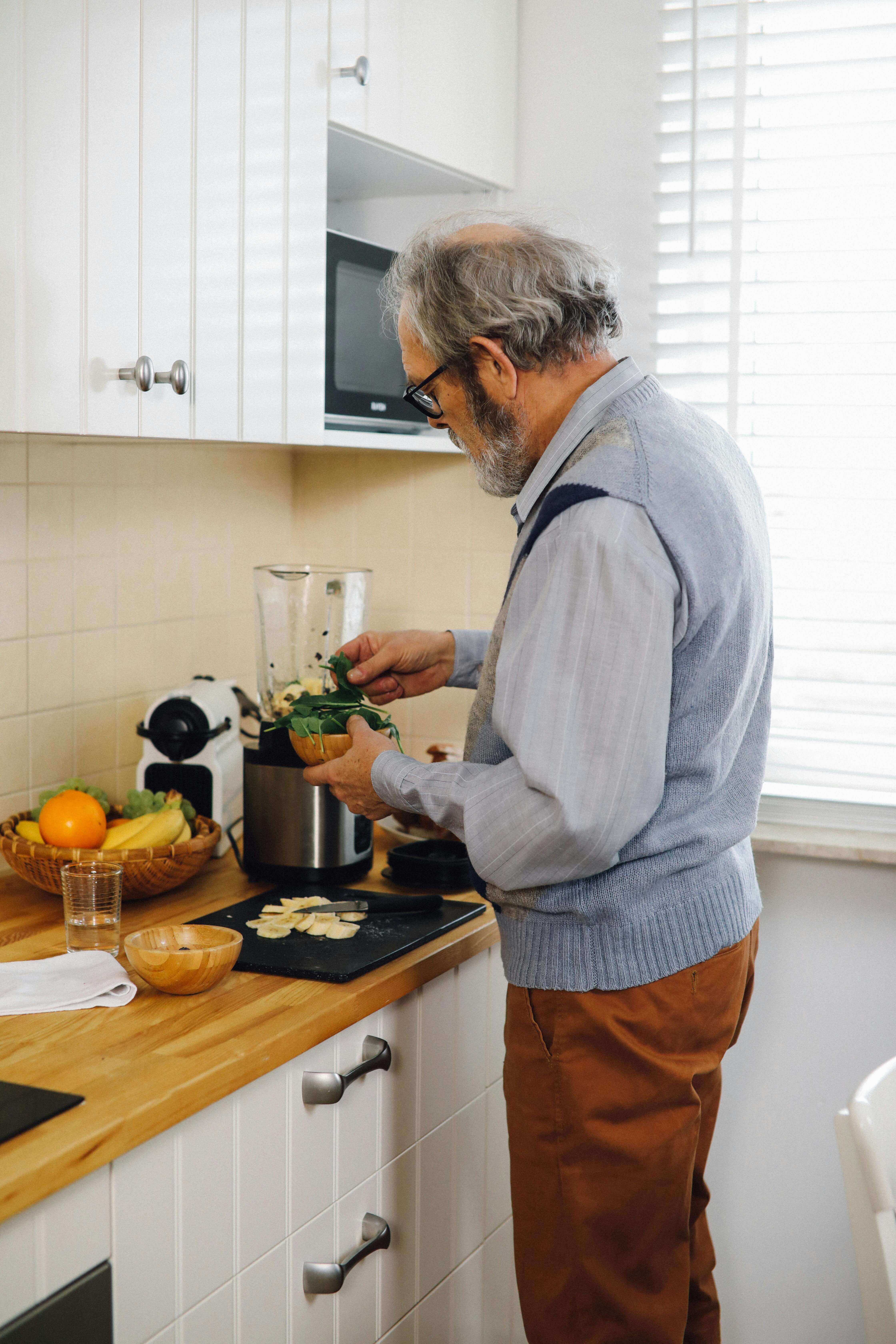Rebuilding Body Trust Through Nutritional Counseling
What does it really mean to trust your body? And what happens when that trust feels broken? For many people, body trust isn’t something they ever learned. Or if they did, it may have been chipped away slowly through chronic dieting, medical trauma, body shame, or simply years of tuning out their body’s needs to meet external expectations. So often, when we talk about body trust, it’s framed like a light switch. It’s something you either have or don’t. But that’s not how it works. If you’ve ever thought, “I want to feel more at home in my body, but I don’t know how,” that’s not random. That thought came from somewhere, and it’s worth listening to. At Nutritious Thoughts, we support you in rebuilding that trust, slowly, compassionately, and in ways that feel grounded in your lived experience. Through nutritional counseling in Raleigh, NC, you’re not given a plan to follow. You’re offered a relationship where curiosity, care, and connection come first.
 Body Trust Doesn’t Disappear Overnight—So Why Do We Expect It to Come Back Instantly?
Body Trust Doesn’t Disappear Overnight—So Why Do We Expect It to Come Back Instantly?
Here’s the thing. If you’ve been conditioned to ignore your hunger, dismiss your needs, or constantly strive to “fix” your body, of course trust feels hard. You didn’t break it. Rather, you adapted to survive in a world that doesn’t always make space for your body’s wisdom. We live in a culture that rewards disconnection. One that frames chronic dieting as a sign of dedication. That labels restriction as “healthy” and measures success by how well we ignore our needs. (To be clear, we don’t recommend any of this.) So when we start to explore body trust, it’s not about snapping our fingers and magically believing. It’s about recognizing how the mistrust was built, and giving ourselves permission to do something different. That’s what nutritional counseling in Raleigh, NC offers: a place to notice, soften, and start again. All without shame or pressure.
What Does Body Distrust Actually Feel Like?
Body distrust doesn’t always look the way people expect. It might show up as:
- Overthinking every food choice
- Feeling like hunger is unpredictable or untrustworthy
- Disconnecting from movement because it feels punishing
- Struggling to tell the difference between fullness and discomfort
- Avoiding mirrors—or feeling like you’re watching yourself from the outside in
None of these are signs of failure. They’re signs of a body that’s been navigating a lot of noise. In sessions of nutritional counseling with a registered dietitian we gently unpack these experiences. Not to pathologize them, but to understand what they’ve been protecting you from. We explore how food and body patterns have helped you feel safe, soothed, or in control—and what it might look like to find other ways of support.
Why Body Trust Isn’t Just About Food (But Food Is a Good Place to Start)
A lot of people come to us thinking, “I just need to eat better.” But pretty quickly, we realize it’s not about food in isolation. It’s about everything surrounding it. Food is where so many of us first learned to override our needs. Maybe you learned early on that being “good” meant ignoring what your body wanted. Or maybe you were encouraged to keep going, even when your body was clearly asking you to slow down. In nutrition counseling, we start to ask different questions:
- What helps you feel safe enough to listen to your body?
- Where do shame and judgment creep into your mealtimes?
- What would it be like to eat without needing to earn it?
Through these questions and the safety of a supportive, nonjudgmental space, you begin to rebuild something deeper than just “better eating habits.” You begin to reconnect with you. You start to notice the moments your body whispers instead of shouts, and you give yourself permission to listen. This isn’t about performing health. It’s about coming home to yourself in a way that feels steady, soft, and real.
 What Might Rebuilding Body Trust Actually Look Like—And What If It’s Simpler Than You Think?
What Might Rebuilding Body Trust Actually Look Like—And What If It’s Simpler Than You Think?
Working with a registered dietitian at Nutritious Thoughts in nutritional counseling doesn’t mean you’ll be handed a food plan or told what to eat. In fact, most sessions look nothing like that. Instead, it might look like:
- Naming a belief you didn’t realize you’d internalized (like “I don’t know how to feel in control around certain foods.”)
- Talking through a triggering experience at the doctor’s office or in a fitting room
- Exploring what “enough” feels like in your body—not just physically, but emotionally
- Practicing a grounding exercise before lunch to see if it helps you stay more present
- Sharing a snack in session while talking about what satisfaction really means
You don’t need to be in crisis to deserve support. And you don’t need to arrive at your session “ready to change.” Curiosity is enough. Showing up is enough.
When Loving Your Body Feels Out of Reach (And That’s Okay)
Sometimes the goal isn’t to love your body. It’s just to feel less at war with it. That’s why we don’t push “positivity” if it doesn’t feel accessible. Especially for folks who’ve experienced trauma, chronic illness, systemic body stigma, or gender dysphoria, the idea of loving your body might feel like a reach. That’s okay. We care more about helping you build a relationship with your body that feels honest, spacious, and respectful.
A relationship where you’re allowed to feel conflicted and still choose care. One where your body doesn’t define you, but you’re also not expected to ignore it. Nutrition counseling creates space for this nuance. We won’t tell you how you should feel. We’ll help you get curious about how you do feel and how you want to relate to those feelings with compassion instead of control.
 This Is Not About “Fixing”—It’s About Returning
This Is Not About “Fixing”—It’s About Returning
Healing doesn’t always look like progress. Sometimes it looks like circling back. Sometimes it looks like resting. And sometimes it looks like eating the meal even when you still feel unsure. We don’t define success by what you’re eating, we look at how you’re feeling while you eat. Can you feel your feet on the floor, your breath in your chest? Is there space to pause before reacting, even when shame or doubt show up? Body trust isn’t a destination. It’s a relationship. One you get to keep coming back to. And in sessions with a registered dietitian in Raleigh, NC, you don’t have to do it alone.
Ready to Reconnect? Work with a Registered Dietitian in Raleigh, NC
You don’t have to have it all figured out to begin. Whether you’re navigating food anxiety, unlearning diet culture, or simply craving a more peaceful relationship with your body, our team at Nutritious Thoughts is here to help. Through nutritional counseling in Raleigh, NC, we create space for you to return to yourself—with care, flexibility, and a deep respect for your lived experience. With in-person offices in Raleigh, Hendersonville, and Asheville—and virtual support available across North Carolina—healing your relationship with food and your body is more accessible than you might think.
- Contact us at (828) 333-0096 or email info@nutritious-thoughts.com
- Tell us more about yourself.
- Because you’re allowed to trust your body again. And we’d be honored to walk alongside you.
Expanded Counseling Services at Nutritious Thoughts
At Nutritious Thoughts, our support extends far beyond individual counseling. Through our Community Wellness & Education programs, we engage with schools, workplaces, and recovery centers to bring tailored nutrition counseling, workshops, and educational presentations directly to your community. Whether delivered on-site or virtually, our goal is to provide accessible wellness tools where they can make the greatest impact. Reach out to learn more about our services and pricing.


 Why Intuitive Eating Feels So Hard (And Why You’re Not Doing It Wrong)
Why Intuitive Eating Feels So Hard (And Why You’re Not Doing It Wrong)
 You’re Allowed to Want Something Different
You’re Allowed to Want Something Different
 Why Intuitive Eating Feels So Hard (And Why That Makes Sense)
Why Intuitive Eating Feels So Hard (And Why That Makes Sense) How a Registered Dietitian Supports Intuitive Eating Without Rules
How a Registered Dietitian Supports Intuitive Eating Without Rules What You Won’t Be Told to Do
What You Won’t Be Told to Do

























